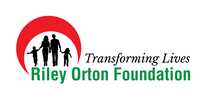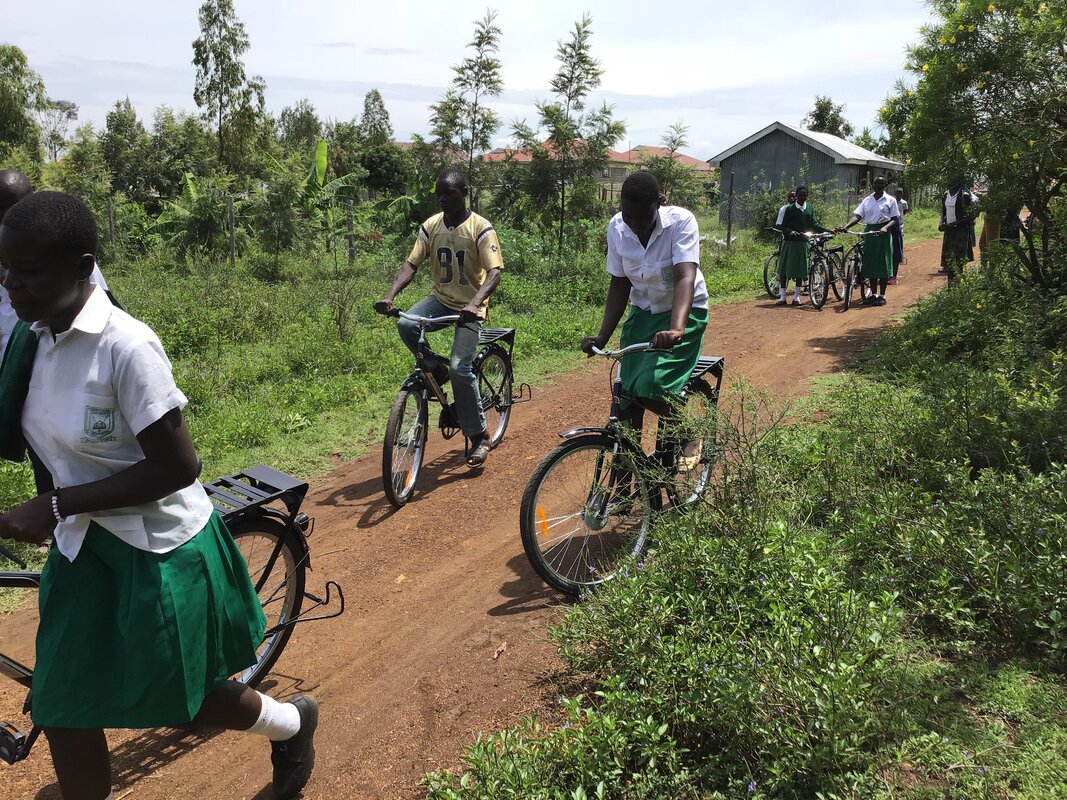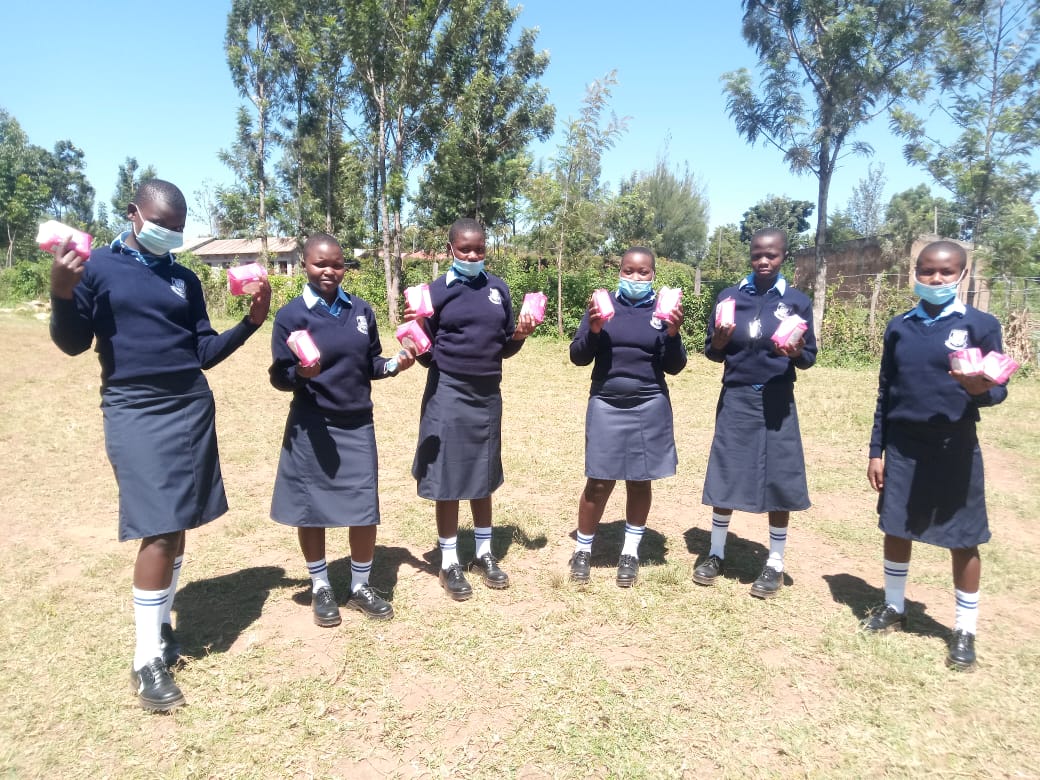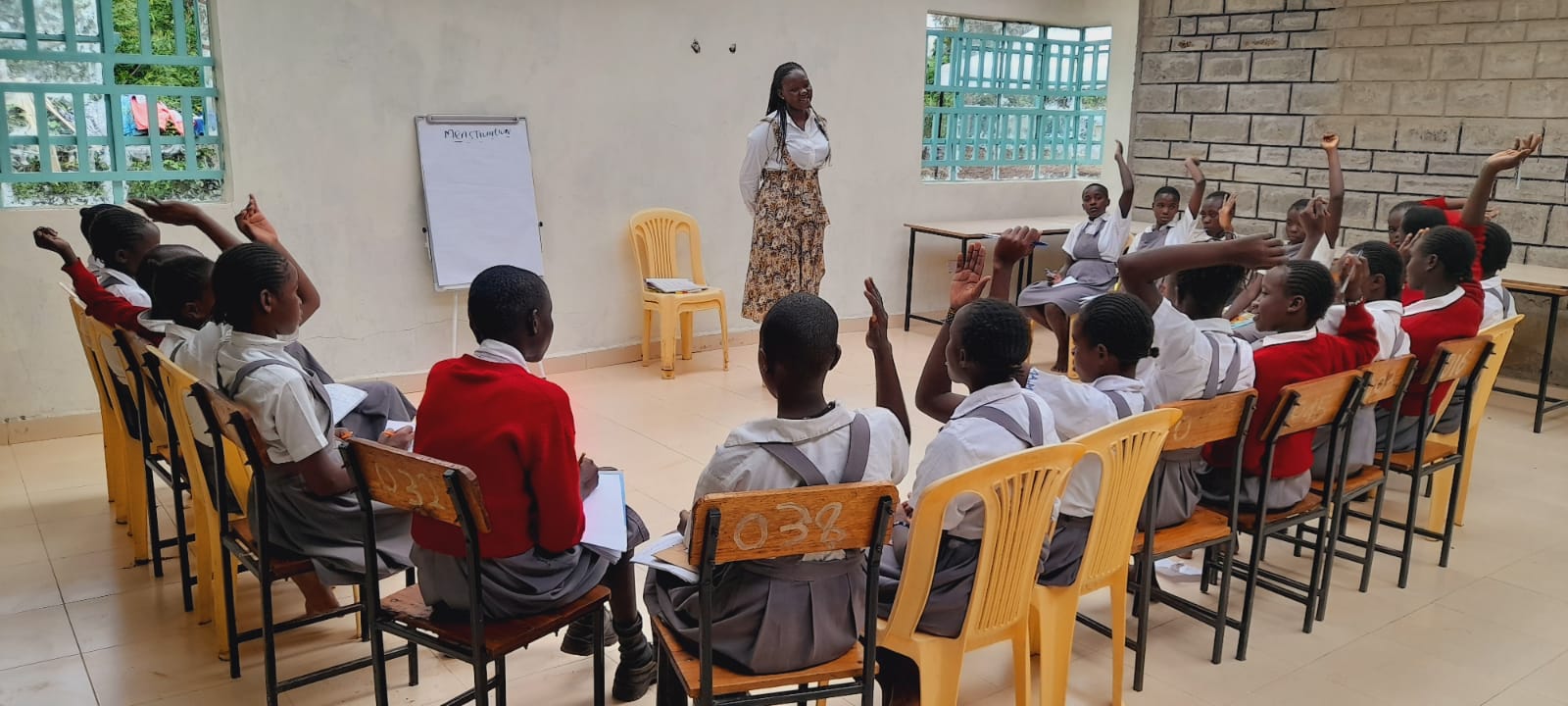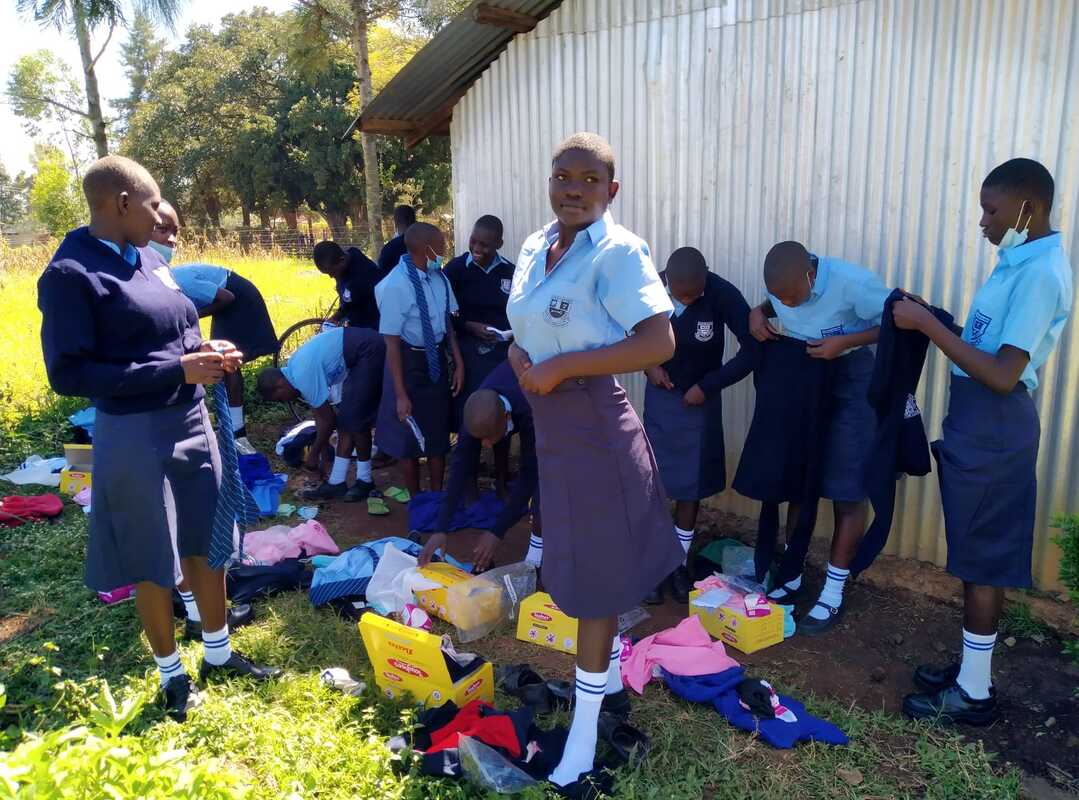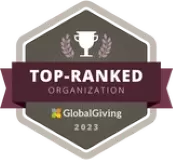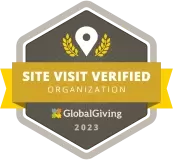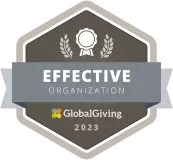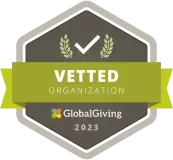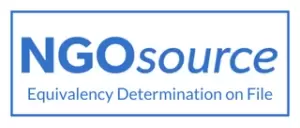Smart girl program
Smart Girl Program is a gender-transformative program that aims to reduce and eliminate the high absenteeism rates of rural girls in schools. Often this is due to their inability to have school fees, school uniforms, food, essential sanitary items or psychosocial support.
The program Involves providing young girls with holistic education, mentorship, skill-building and enrichment opportunities which offers a transformative experience that empowers the success of marginalized girls. We endeavor to eliminate all barriers that prevent girls from accessing education and realizing their full potential and this is through provision of sexual reproductive health and rights education, distribute menstrual products, school uniforms and awarding high school scholarships. We also believe that including boys in empowerment sessions is essential in fostering the success of the next generation, and critical to creating gender equity in our community.
Our vision is that all young women and men should have the opportunity to succeed despite their background or barriers they’ve faced.
To promote gender equality “means that women and men, and girls and boys, enjoy the same rights, resources, opportunities, and protections.Objectives
i) SRHR education, GBV awareness training and referral/linkages to support systems
ii) Provision of essential supplies e.g. school uniforms, inner garments, bicycles to cycle to school sanitary pads.
iii) Provision of high school scholarships
iv)Organizing leadership mentorship camps
v) Community service: students participate in community service and leadership programs, enabling them to build their skills to positively bring about change in their community.
This program also applies a gender lens by engaging boys and men in supporting girls' empowerment to ensure that we address the deeply rooted cultural context of girl’s education and economic freedom.
Long Term Impact
This initiative strives to reduce sexual and gender-based violence, increase self-confidence of these young girls, and improve sexual and reproductive health behavior in the community.
We believe that Education is the only way out of poverty for these marginalized rural girls and a platform they will use to create community led change once they graduate. Our goal is to improve girls' agency through life skills mentorship, leadership skills training, guidance and counseling . We look forward to an empowered community of girls and women with the agency to realize their dreams and support not only themselves but also their families and community at large.
The program Involves providing young girls with holistic education, mentorship, skill-building and enrichment opportunities which offers a transformative experience that empowers the success of marginalized girls. We endeavor to eliminate all barriers that prevent girls from accessing education and realizing their full potential and this is through provision of sexual reproductive health and rights education, distribute menstrual products, school uniforms and awarding high school scholarships. We also believe that including boys in empowerment sessions is essential in fostering the success of the next generation, and critical to creating gender equity in our community.
Our vision is that all young women and men should have the opportunity to succeed despite their background or barriers they’ve faced.
To promote gender equality “means that women and men, and girls and boys, enjoy the same rights, resources, opportunities, and protections.Objectives
- To promote gender equality by ensuring that girls and boys enjoy the same rights, resources, opportunities, and protections.
- To empower girls by building agency/confidence and boosting low self-esteem for the girl’s .
- To create awareness on health and literacy.
- To provide rich experiential activities designed to build girls and boys of strong character, healthy self-concept and great potential
- To support young rural girls access to secondary school
- To improve girls agency through life skills mentorship, leadership skills training, and counseling
- To reduce dropout rates by ensuring access non-fee items such as school uniforms, notebooks, stationery, and sanitary items
- To increase retention rate for girls by providing meals, nutrition stipends, and enrollment in school feeding programs
- The Challenge/ Barriers:
Approximately 85% of primary-school-age children in western Kenya are enrolled in school but only a third of them complete their education curriculum. Drop-out rates are higher in rural girls who experience early sexual exploitation, underage-marriages, transactional sex for lifts to school, lack of food items, amongst others limiting factors. Rural girls are often unable to go to school due to the lack of school uniforms, shoes, long commutes to school, school feeding costs among others. Girls in these areas, also face other challenges including transactional sex (for lifts to school, sanitary pads, food), and gender based violence. The Riley Orton Foundation works with partner schools and community groups to identify, enroll, and support girls in our program to ensure they all stay in school.
i) SRHR education, GBV awareness training and referral/linkages to support systems
ii) Provision of essential supplies e.g. school uniforms, inner garments, bicycles to cycle to school sanitary pads.
iii) Provision of high school scholarships
iv)Organizing leadership mentorship camps
v) Community service: students participate in community service and leadership programs, enabling them to build their skills to positively bring about change in their community.
This program also applies a gender lens by engaging boys and men in supporting girls' empowerment to ensure that we address the deeply rooted cultural context of girl’s education and economic freedom.
Long Term Impact
This initiative strives to reduce sexual and gender-based violence, increase self-confidence of these young girls, and improve sexual and reproductive health behavior in the community.
We believe that Education is the only way out of poverty for these marginalized rural girls and a platform they will use to create community led change once they graduate. Our goal is to improve girls' agency through life skills mentorship, leadership skills training, guidance and counseling . We look forward to an empowered community of girls and women with the agency to realize their dreams and support not only themselves but also their families and community at large.
Monitoring and Evaluation:
Baseline/ Enrolment:
At the start of the program, ROF Collects qualitative and quantitative baseline data to determine, in the community:
Program Check Points:
ROF conducts termly evaluation of the program through observation of student progress report cards, direct interviews with the girls and secondary data on girls school enrolment and completion. Targets include;
ROF staff tracks the number of girls graduating from the program, enrolling in college and securing jobs after graduation.
Agency Survey Tool:
ROF uses an agency survey tool to measure the impact of the mentorship and life skills training for girls. Agency here refers to the capacity of individuals to define aspirational goals and coordinate the necessary knowledge, skills, attitudes and resources to take action to achieve stated goals. Agency is scored through the aggregation of the four main constructs as follows:
Self-beliefs- 30%
Environmental beliefs- 10%
Self-governance skills- 30%
Leadership skills- 30%
Each of an individual’s raw scores in all the attributes is weighted and contributes to each construct. For example, scores in goal setting, problem-solving, decision making, perseverance, and self-awareness are weighted and summed to produce the self-governance score.
We report the average (mean) of the scores obtained by participants at baseline and endline and compare the means using a t-test as the test of significance. The resulting difference is reported either as significant or not based on this test.
In Kenya, secondary school education takes 4 years from 9th to 12th grade. With a strong foundation in literacy and high school scholarships, we believe that our girls will excel in their high school exit exams and join college under government bursaries and scholarships awarded to average students scoring C+ and above in Kenya Certificate of Secondary Education (KCSE).
Our success will be measured by the number of scholarship recipients who complete their education and are prepared for a job in Kenya. We will look at, among others;
i) the average school score in Kenya Certificate of Primary Education (KCPE) to allow transition to high school
ii) the % of girls achieving pass mark (250 and above out of a possible 500) in KCPE
iii) the number of high school scholarships awarded to bright and needy girls from low income/underserved households
v) the number of girls who complete high school and transition to universities and other institutions of higher learning
vi) the number of girls and young women impacted through leadership/life skills training
vii) the number of girls taking leadership positions in their respective schools We will also use a case study of beneficiaries, photos and progress reports to assess the impact our programming has created in their lives.
Baseline/ Enrolment:
At the start of the program, ROF Collects qualitative and quantitative baseline data to determine, in the community:
- Girls graduating from primary school 70%
- Girls school attendance rate 80%
- Girls secondary school enrolment 44%
- Girls school completion rate 76%
- Girls agency 40%
Program Check Points:
ROF conducts termly evaluation of the program through observation of student progress report cards, direct interviews with the girls and secondary data on girls school enrolment and completion. Targets include;
- To increase the percentage of girls graduating from primary school from 70% to 95%
- To increase girls school attendance rate from 80% to 99%
- To increase girls secondary school enrolment from 44% to 90%
- To increase girls school completion rate from 76% to 99%
- To increase girls agency from 40% to 80%
ROF staff tracks the number of girls graduating from the program, enrolling in college and securing jobs after graduation.
Agency Survey Tool:
ROF uses an agency survey tool to measure the impact of the mentorship and life skills training for girls. Agency here refers to the capacity of individuals to define aspirational goals and coordinate the necessary knowledge, skills, attitudes and resources to take action to achieve stated goals. Agency is scored through the aggregation of the four main constructs as follows:
- Self-Bel iefs (Self-Efficacy, Self-Esteem),
- Environmental Beliefs (Empowerment & Positive Gender Attitudes),
- Self-Governance Skills (Goal setting, Problem Solving, Perseverance, Decision Making, Self awareness), and
- Leadership Skills (leadership propensity, Interpersonal communication, Public speaking, conflict resolution , volunteerism).
Self-beliefs- 30%
Environmental beliefs- 10%
Self-governance skills- 30%
Leadership skills- 30%
Each of an individual’s raw scores in all the attributes is weighted and contributes to each construct. For example, scores in goal setting, problem-solving, decision making, perseverance, and self-awareness are weighted and summed to produce the self-governance score.
We report the average (mean) of the scores obtained by participants at baseline and endline and compare the means using a t-test as the test of significance. The resulting difference is reported either as significant or not based on this test.
In Kenya, secondary school education takes 4 years from 9th to 12th grade. With a strong foundation in literacy and high school scholarships, we believe that our girls will excel in their high school exit exams and join college under government bursaries and scholarships awarded to average students scoring C+ and above in Kenya Certificate of Secondary Education (KCSE).
Our success will be measured by the number of scholarship recipients who complete their education and are prepared for a job in Kenya. We will look at, among others;
i) the average school score in Kenya Certificate of Primary Education (KCPE) to allow transition to high school
ii) the % of girls achieving pass mark (250 and above out of a possible 500) in KCPE
iii) the number of high school scholarships awarded to bright and needy girls from low income/underserved households
v) the number of girls who complete high school and transition to universities and other institutions of higher learning
vi) the number of girls and young women impacted through leadership/life skills training
vii) the number of girls taking leadership positions in their respective schools We will also use a case study of beneficiaries, photos and progress reports to assess the impact our programming has created in their lives.
